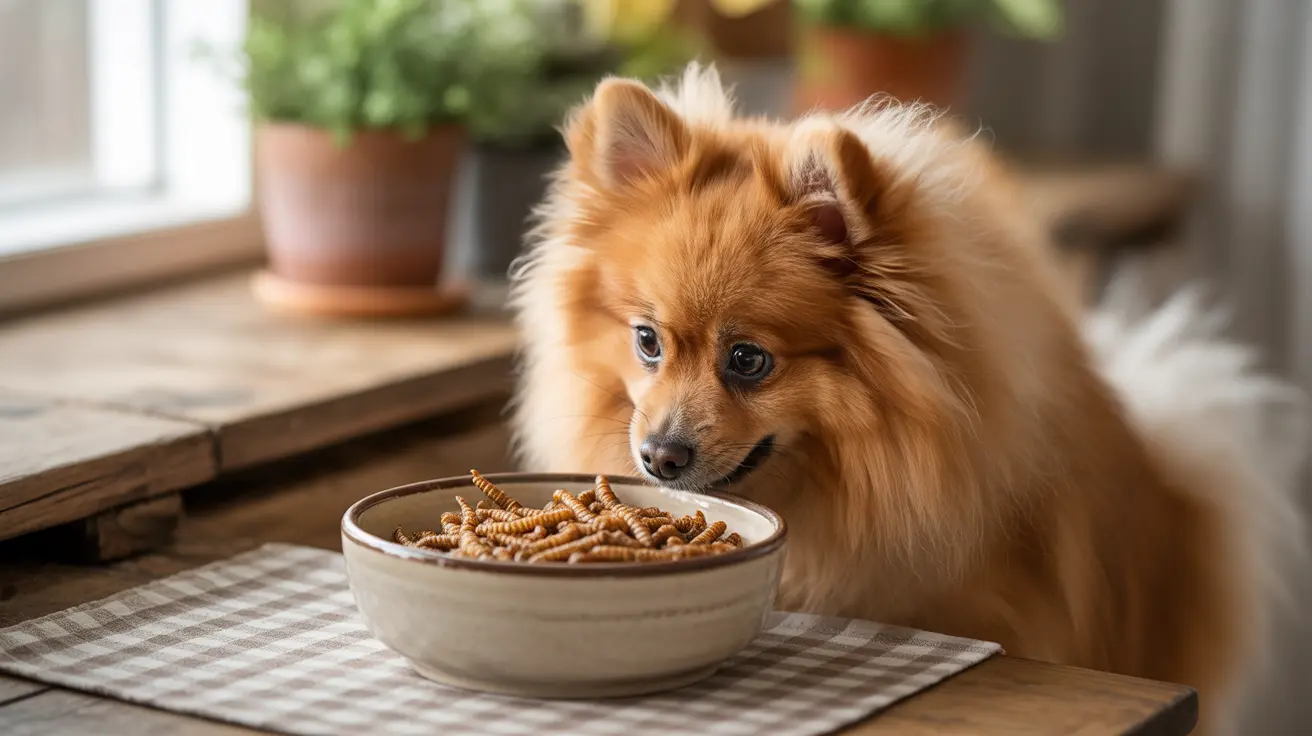As pet owners increasingly seek sustainable and nutritious food options for their furry friends, mealworms have emerged as an intriguing protein source. But can dogs eat mealworms safely? The short answer is yes – mealworms are generally safe and can be highly beneficial for dogs when properly introduced and fed in moderation.
In this comprehensive guide, we'll explore everything you need to know about feeding mealworms to your canine companion, from their impressive nutritional profile to proper serving methods and potential considerations.
Understanding Mealworms as a Dog Food Source
Mealworms are the larval stage of the darkling beetle, and they're quickly gaining recognition in pet nutrition circles. These protein-packed insects offer a sustainable alternative to traditional meat proteins, with dried mealworms containing approximately 50% protein by weight.
Nutritional Benefits for Dogs
Mealworms pack an impressive nutritional punch that can benefit your dog's health in multiple ways:
- High-quality protein (50g per 100g dried weight)
- Essential amino acids for muscle development
- Healthy fats, including omega-3 and omega-6 fatty acids
- Important vitamins and minerals (B12, iron, zinc, calcium)
- Digestible fiber for gut health
Safe Feeding Guidelines
When introducing mealworms to your dog's diet, follow these essential guidelines:
Proper Introduction
Start with small amounts mixed into your dog's regular food. Monitor for any adverse reactions or digestive changes over 24-48 hours before increasing the portion size.
Serving Options
Mealworms can be served in several forms:
- Dried (most common and convenient)
- Powdered (easily mixed with other foods)
- Commercial dog foods containing mealworm protein
- Homemade treats (using mealworm powder)
Potential Risks and Considerations
While mealworms are generally safe, be aware of these potential concerns:
- Allergic reactions (particularly in dogs with existing food sensitivities)
- Quality control (always purchase from reputable sources)
- Portion control (treat as a supplement, not a main meal)
- Storage requirements (keep dried mealworms in a cool, dry place)
Environmental Impact and Sustainability
Choosing mealworms as a protein source for your dog can have positive environmental implications. Compared to traditional livestock, mealworm farming requires:
- Less water
- Minimal land use
- Lower greenhouse gas emissions
- Reduced environmental impact
Frequently Asked Questions
Can dogs safely eat mealworms, and what are the nutritional benefits?
Yes, dogs can safely eat mealworms. They're rich in protein, essential amino acids, healthy fats, and various vitamins and minerals. Mealworms provide a complete protein source that supports muscle maintenance, energy levels, and overall health.
How should I introduce mealworms into my dog's diet to avoid allergies or digestive issues?
Start with a small amount (a few dried mealworms) mixed into your dog's regular food. Watch for any adverse reactions over 24-48 hours. If no issues occur, gradually increase the amount over several days while continuing to monitor your dog's response.
Are dried, live, or powdered mealworms better for feeding dogs?
Dried mealworms are generally the safest and most convenient option for dogs. They're easier to store, handle, and portion. Powdered forms work well in homemade treats or as food toppers, while live mealworms aren't typically recommended due to potential contamination risks.
Can mealworms be a sustainable alternative protein source in commercial dog foods?
Yes, mealworms are emerging as a sustainable protein alternative in commercial dog foods. They require fewer resources to produce than traditional meat proteins and have a significantly lower environmental impact while providing comparable nutritional benefits.
What precautions should I take when feeding my dog homemade treats with mealworms?
When making homemade treats, use only food-grade mealworm powder or dried mealworms from reputable sources. Avoid adding seasonings or ingredients toxic to dogs, such as garlic, onions, or xylitol. Keep portions moderate and store treats properly to prevent spoilage.
Conclusion
Mealworms can be a safe, nutritious, and environmentally friendly addition to your dog's diet when properly introduced and served. Whether as treats, food toppers, or part of commercial dog food, they offer an excellent alternative protein source that aligns with both pet health and environmental sustainability goals.






